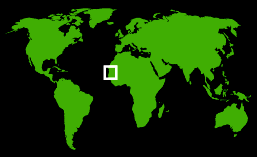|
Three recent tragedies at sea, in Senegal, Gambia and Mauritania, highlight the inadequate surveillance that is said to be threatening the future of the fishing sector and putting lives at risk.
One of two Senegalese tuna boats, President Maguette Diack, capsized after it had been operating near the maritime border with Mauritania. Although 11 crewmembers were rescued and taken to hospital in the Senegalese capital, Dakar, eight more were reported missing.
This latest tragedy comes just days after four people drowned and another two were reported missing when the Italian fishing boat Twelve sank in the port of Dakar on 17 January.
And, hours earlier, six fishermen died when their boat capsized off Mbour, 140 kilometres southeast of Dakar.
Last September more than 1,200 people died when the Senegalese ferry, the Joola, sank off the Gambia. The Surveillance Coordination Unit (UCOS) of the Regional Fishery Commission assisted in the rescue operation but was unable to prevent the disaster, despite the fact that it occurred just 45 kilometres from Banjul, where UCOS is based, reports La Opinión de A Coruña.
These tragedies have occurred just as the member countries of CSRP - which comprises Senegal, Guinea, Guinea-Bissau, Mauritania, Cabo Verde, Gambia, and will soon include Sierra Leone - are beginning to adopt the Ship Surveillance System (SSN), to monitor and control fishing grounds, reports Sudonline de Senegal.
Scarce resources mean these countries are unable to act individually to protect their rich but ravaged resources and prevent tragic events such as the recent ones, so a joint effort is essential, together with the help they get from the United Nations' Food and Agriculture Organisation (FAO).
However, a lack of information on surveillance and control methods such as Argos and Inmarsat, as well as the lack of political will on the part of the respective governments, is perhaps the most important factor in causing these deaths at sea, according to Sudonline de Senegal.
By Patricia Lorú
FIS Latino
Top
|
